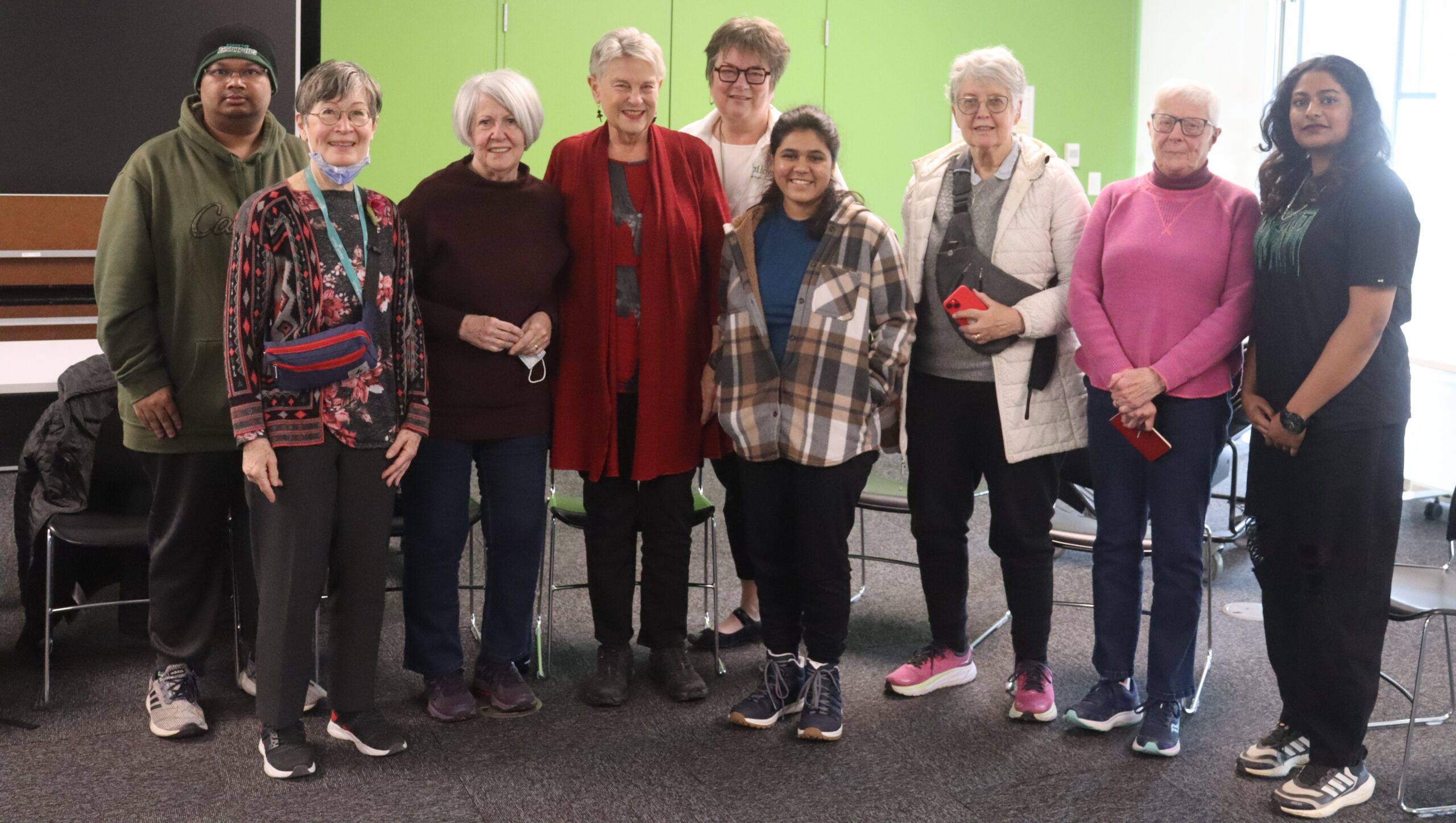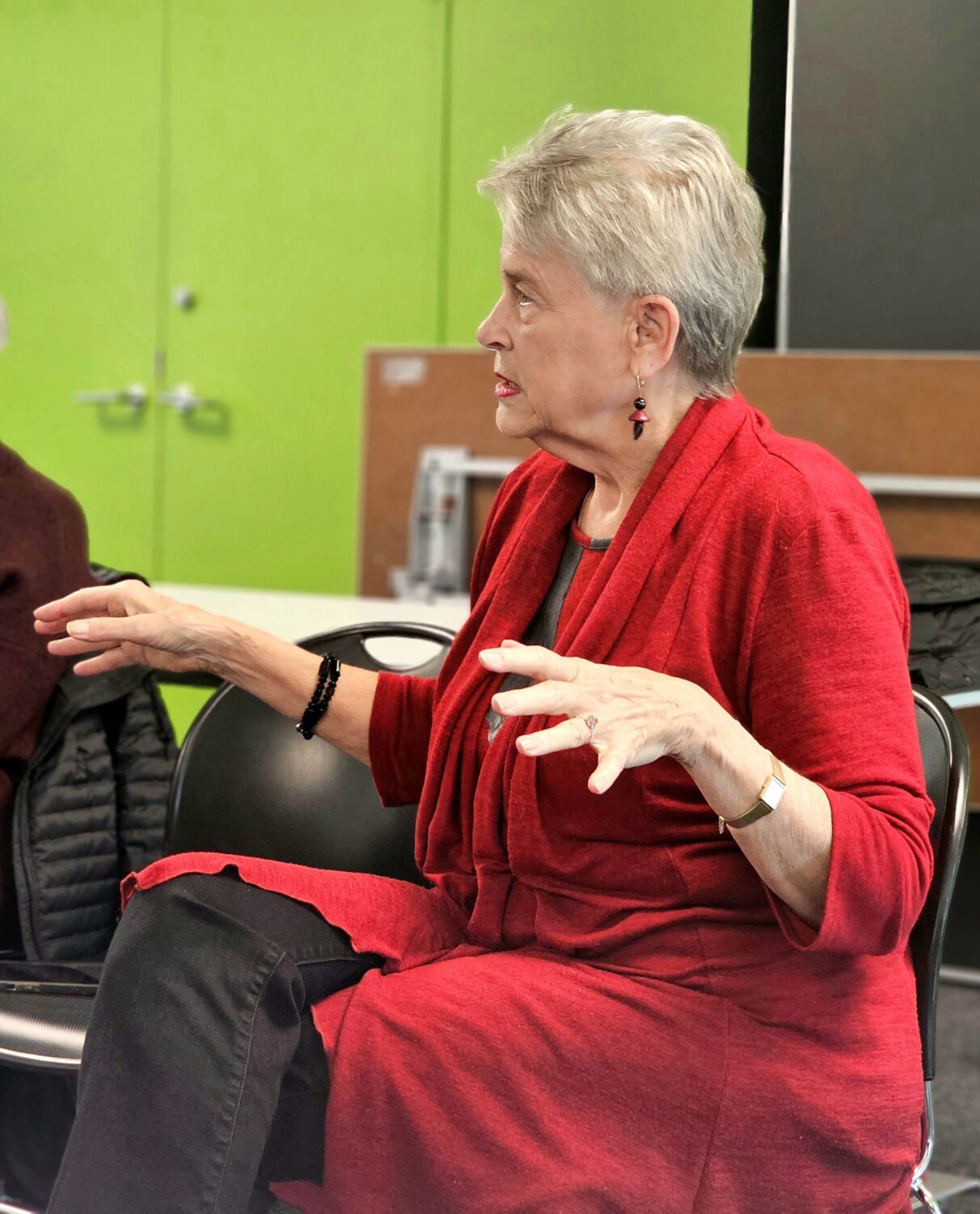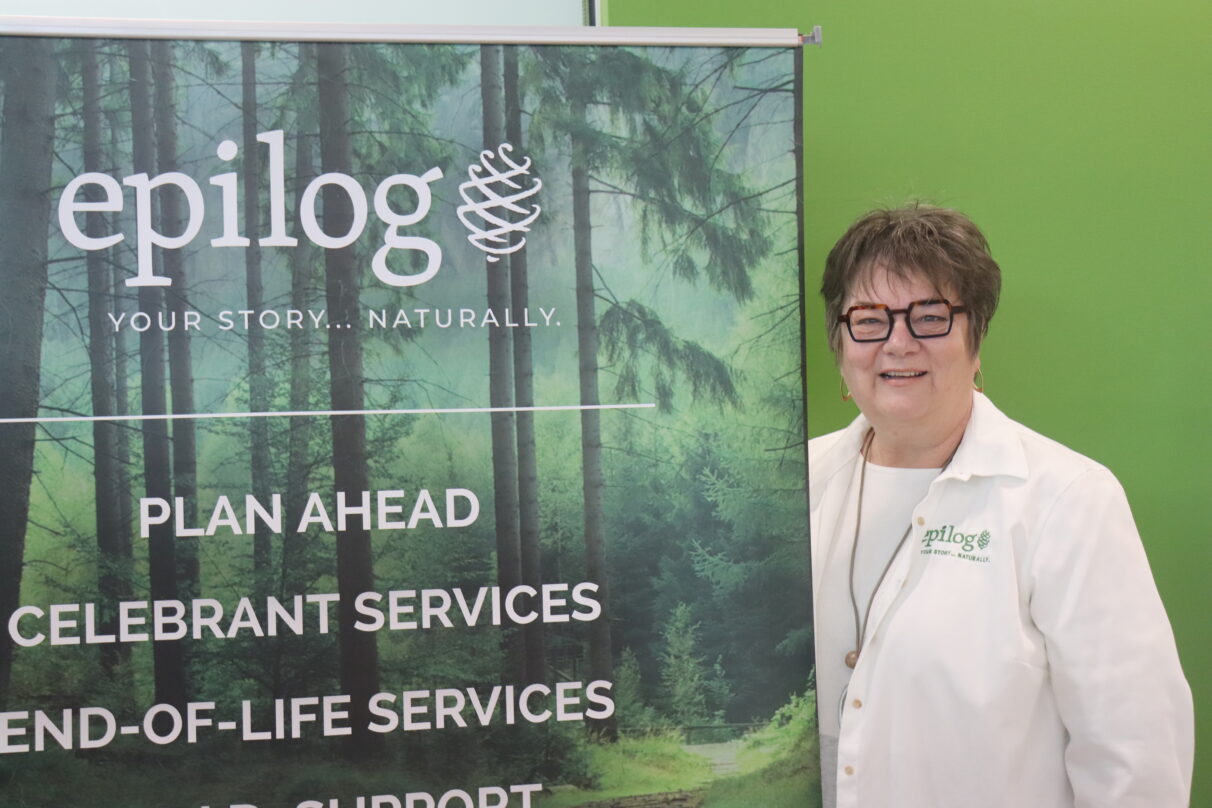Talking about death ‘won’t kill you,’ says Death Café founder
Group members share personal stories of death

caption
Death Café participants meet at the Central Library to discuss death, dying and the end of life.Every third Thursday of the month, on the third floor of the Halifax Central Library, 10 people sit in a circle sharing their personal stories of death. They drink coffee, cry, laugh and read poetry.
From time to time, silence reigns in the room.
“I have been dealing with death for the past two or three years and I have no one to talk about it,” says Sheethal Mariam John, a first-time attendee.
The participants met as part of Death Café on Thursday to share their experiences and thoughts on death, dying and the end of life.
During the event, participants talked about their first experience of death, sharing stories of losing pets and close family members. Some participants talked about not being able to say goodbye to the ones they loved and remembering them long after they are gone. They also discussed appreciating people while they live, by calling their families and friends more often and telling them what they like about them.
For the last five years, Bonnie Coulombe has been a regular at the Death Café. Before retiring to Halifax, she worked in palliative care in Ottawa.
“I looked after my mom who passed away and we had home care,” said Coulombe. “And because of the work that I’ve done in palliative care, I’m very familiar with ‘the dying process.’”
“Talking about death won’t kill you,” says Deborah Luscomb, founder of Halifax’s Death Café. In 2010 Luscomb moved to Boulder, Colo., where she observed confusion in peoples’ conversations around aging and death.
“Everybody was talking about the whole dying thing and they didn’t understand it, and the system didn’t seem adequate,” said Luscomb. She joined a group of women and together started her first Death Café.
After returning to Halifax two years later, Luscomb continued to foster open discussions about death and launched the local Death Café.
“It was clear to me that nobody was talking about death because of the culture we live in,” says Luscomb. “It seemed absurd. So, I decided to create a venue where that would happen.”
Death Café was first hosted at the Trident Cafe and changed locations several times due to a growing number of participants. During the COVID-19 pandemic, it was held online. Since May 18, the events are held in-person at the Halifax Central Library.

caption
Deborah Luscomb engaging in a conversation at the Death Café. Nov. 16, 2023“I’m a senior and I’m probably closer to death than I am to birth,” said Diane Doane, a participant. “Since I’m coming here, I’ve had different experiences where I don’t fear death so much.”
The Death Café idea originated in Switzerland, where sociologist Bernard Crettaz organized the first event of its kind in 2004. Since then, the phenomenon has expanded around the globe.
“It gives you a perspective of life,” says Mohammad Yousuf, a first-time participant at Halifax’s Death Café.
“Next minute might be my last minute. I might just drop dead right now,” says Yousuf. “It’s a good thing to talk about so you’re not frightened of what might happen.”
Louisa Horne is the founder of Epilog, a company centred on end-of-life care, and the current host of the discussions. Before becoming a host, she also attended the Death Café.
“There’s always that organic conversation that comes from the group, because they had a reason to come in the first place,” said Horne. “There’s an uplifting component to it.”

caption
Louisa Horne is the founder of Epilog and host of the Death Café. Nov. 16, 2023Horne says a big part of her motivation for hosting is creating a safe space to bring up conversations about preparing for the end of life.
“That peace of mind, that comes from just having things thought through and hopefully talked about among the friends and family, that needs to be having this kind of sharing happening,” says Horne.
“So many people are afraid to talk about death, afraid that talking about it is going to make it happen sooner,” said Jacquie Bell, a retired palliative care volunteer and social worker. She has been attending the events since they were first organized.
“I think more and more now people are beginning to being more open to discussing such natural phenomena, ” says Coulombe. “We’re all going to die.”
About the author
Victoria Brzezinski-Szadzianis
Victoria is a Franco-Polish student. She moved to Halifax to study journalism at King's. She's in her fourth year of the BJH program.
